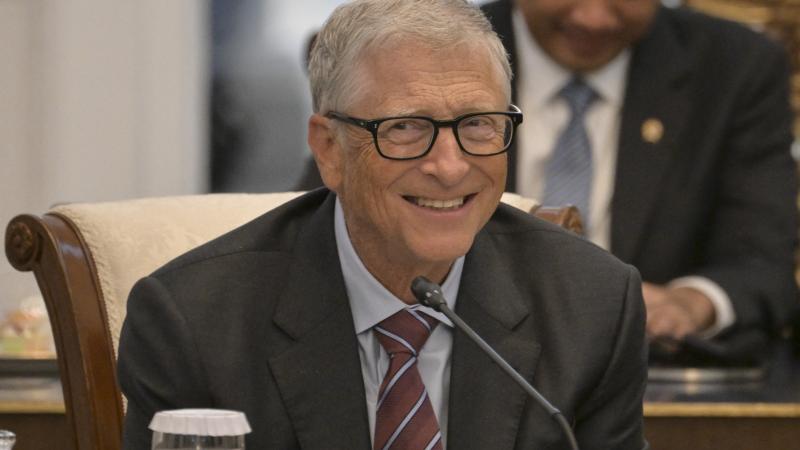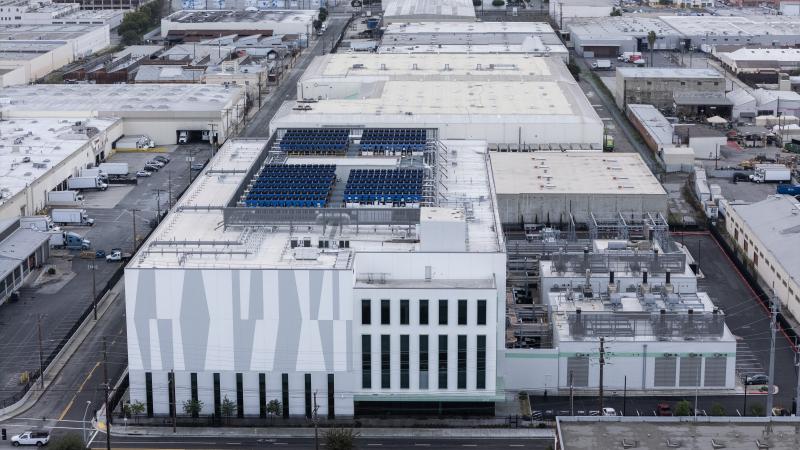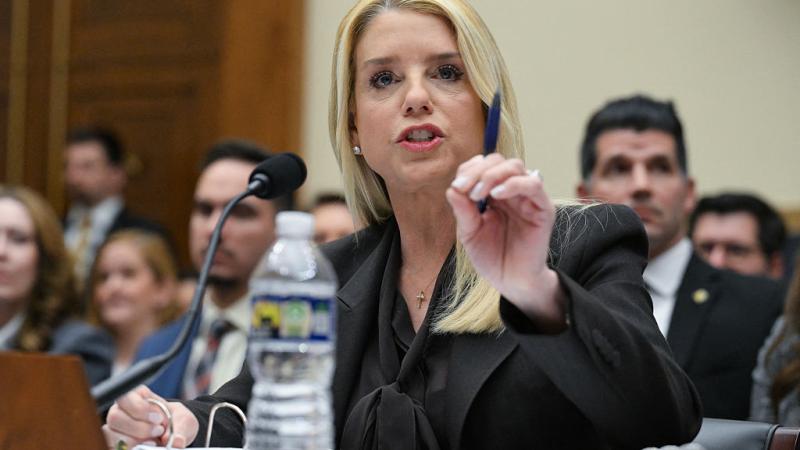Hamas' terror attacks threaten U.S. oil security, heightened by Biden's anti-drilling policies
Crisis in the Making? The ability of the U.S. oil and gas industry to meet national demand would run up against the Biden administration’s opposition to drilling, and the U.S. Strategic Petroleum Reserve is at a decades-long low.
The Hamas terrorist attack on Israel this weekend has raised concerns over the security of the domestic supply of oil and gas. Should the conflict escalate in the region and disrupt exports from the Middle East, the ability of the U.S. oil and gas industry to meet national demand would run up against the Biden administration’s opposition to drilling.
Even if the Biden administration were to change course in the face of a conflict-driven energy crisis, it would take some time before the industry to ramp up production enough to meet demand.
Mike Moncla, president of the Louisiana Oil and Gas Association, said in a statement that it can take years of planning before a well is brought online in the Gulf of Mexico, where 15% of the nation’s supply is produced.
“With the supply and demand issues on oil, along with record level inflation, one would think the Biden Administration would ease up on their anti-oil and gas regulations that hurt all Americans,” Moncla said.
President Joe Biden campaigned on a promise to end fossil fuels, which was to include a ban on drilling on federal lands. Within a week of taking office, he issued an executive order enacting a moratorium on new oil and gas leases on public lands, but the oil industry successfully sued to get the Bureau of Land Management to resume regular lease sales.
The Inflation Reduction Act also contained provisions that tied oil and gas lease sales to approvals for renewable energy projects.
The Biden administration recently proposed its five-year offshore oil and gas leasing program, which allows for only three Gulf of Mexico lease sales through 2029. The plan, which should be finalized by the end of the year, would carry out the lowest number of offshore lease sales by the federal government in U.S. history. It also bans leasing off the Atlantic and Pacific Oceans, as well as the Alaska Coast.
An E&E News analysis shows that the number of approved applications to drill was between 52 and 53 since Biden took office. The Trump administration averaged 75 between 2017 and 2020.
In an effort to bring down gasoline prices, the Biden administration began tapping the nation’s oil stockpile, known as the Strategic Petroleum Reserve (SPR), in 2022. According to the U.S. Energy Information Administration, the SPR held around 638 million barrels of oil at the start of Biden’s presidency. At the end of September, it had dropped to 315 million barrels — a 17 day supply, which PBS reported is the lowest level since the 1980's.
Tim Stewart, president of the U.S. Oil and Gas Association, told Just The News that he doesn’t expect that a serious disruption in petroleum imports from the Middle East would convince the Biden administration to increase domestic production.
“They will stay the course. In fact, earlier this week White House Spokesman John Kirby, when pressed on the horrible events in Israel, doubled down and stated that climate change was a far greater existential threat than nuclear war….They will never admit they are wrong even if the consequences are disastrous,” Stewart said.
Larry Behrens, communications director for Power The Future, an energy advocacy group, told Just the News that the Biden administration, in its opposition to fossil fuels, gave little thought to the consequences to national security should imports be threatened.
“Energy security is national security, and all Joe Biden seems to want to do is surrender. It’s abhorrent that Iran had a record year for oil exports in 2022 because Joe Biden looks the other way on sanctions while constantly attacking American energy workers. Our allies across the globe and our families at home need American energy not more failure from the Biden Administration,” Behrens said.
Disputing that its policies are a meaningful impediment to domestic production, the Biden administration points to record levels of production since Biden took office.
According to the U.S. Energy Information Administration (EIA), domestic production is projected to reach a record high of 12.9 million barrels per day by the end of 2023.
Melissa Schwartz, communications director for the U.S. Department of the Interior, told E&E News that the administration is committed to “responsible production” where oil and gas production is allowed. The Department, she said, "will continue to support that responsible development of the nation’s natural resources."
The U.S. Oil and Gas Association's Stewart said before Biden took office, thousands of wells were drilled but never completed due to the collapse of petroleum demand as a result of the pandemic. Most of those wells were brought online in 2021 and 2022 as oil prices recovered.
“The Biden Administration had nothing to do with that at all. They have actually been a huge impediment to new wells being drilled,” Stewart said.
According to the EIA, there were 7,697 drilled but uncompleted wells in January 2020. By August 2023, that number fell to 4,749.
Stewart said Biden’s energy policies, including the draining of the SPR, have left the country in a precarious energy situation.
“Even the industry is slow to acknowledge that this is nowhere we want to be. If a major weather event or – God forbid – a terrorist action knocks off refining or transportation capacity for an extended period of time, it would have a catastrophic impact on our economy,” Stewart said.
Moncla said that to bring an offshore oil well online in the Gulf of Mexico, a company must first bid at the lease sale. Then, it has to get seismic work done, and the geology has to be studied. Then, the company has to contract drilling rigs. If a well is drilled and completed, the producer then has to consider transport options to get the product to shore. That usually means a pipeline has to be constructed.
“That can add months or years of additional time,” Moncla said, adding that delays and shortage of leased acres takes a toll on production, and American consumers at the pump.
Kevin Killough is an energy reporter for Just The News. Follow him on X, formerly Twitter.
The Facts Inside Our Reporter's Notebook
- Biden campaigned on a promise
- oil industry successfully sued
- lease sales to approvals
- Gulf of Mexico lease sales
- E&E News analysis
- PBS reported
- Power The Future
- domestic production
















